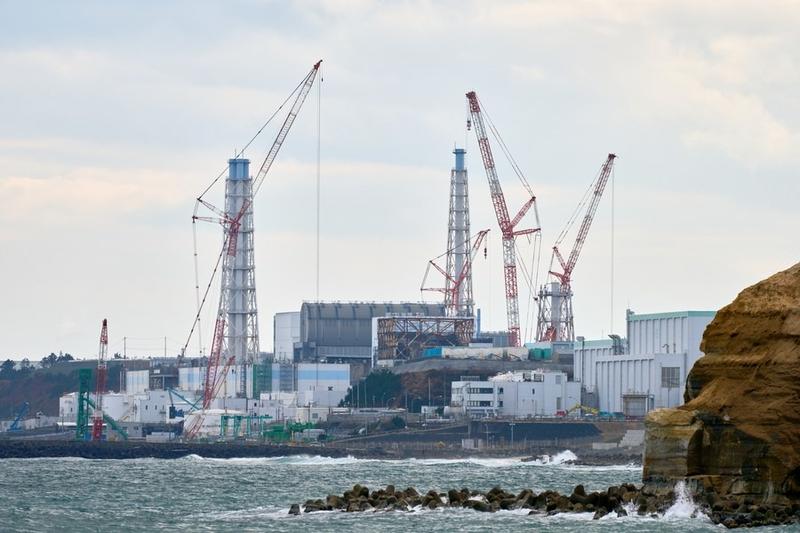 This photo taken on March 6, 2023 shows the Fukushima Daiichi nuclear power plant in Futabacho, Futabagun of Fukushima Prefecture, Japan. (PHOTO / XINHUA)
This photo taken on March 6, 2023 shows the Fukushima Daiichi nuclear power plant in Futabacho, Futabagun of Fukushima Prefecture, Japan. (PHOTO / XINHUA)
Again, Japan started a new round of releasing nuclear-contaminated water from the crippled Fukushima Daiichi nuclear power plant into the ocean on Wednesday.
Quite like the previous three rounds, approximately 7,800 metric tons of nuclear-contaminated water will be discharged into the Pacific Ocean over a period of around 17 days, according to the Tokyo Electric Power Company, which operates the nuclear power plant.
Yamasaki further emphasized the history of dishonesty from both the government and TEPCO, noting that criticisms regarding the lack of earthquake and tsunami countermeasures were raised even before the Fukushima nuclear accident in 2011
Acting against wishes of local fishermen and neighboring countries and regions, TEPCO said it will skip the process of temporarily storing nuclear-contaminated water in a large tank to assess the tritium level before its release. Instead, the company will monitor the tritium level as the water passes through pipes.
ALSO READ: Japan urged to ensure nuclear safety measures
Xinhua reported TEPCO’s discharge of the radioactive wastewater started at around 11:30 am local time Wednesday.
The discharge of nuclear-contaminated water began in August last year, despite strong opposition both domestically and internationally. The release is expected to last for about three decades.
TEPCO estimates that a total of 31,200 tons of nuclear-contaminated water will be discharged during fiscal year 2023 ending March.
READ MORE: Hong Kong govt concerned over Fukushima nuke water leak
Earlier this month, a spokesperson of the Chinese embassy in Japan said the discharge of nuclear-contaminated water from the Fukushima plant into the sea concerns the health of all mankind, the global marine environment and international public interests.
“We once again earnestly urge Japan to take seriously the concerns of neighboring countries and the international community, engage in sincere consultations with relevant stakeholders, fully cooperate in establishing effective international monitoring arrangements with substantive participation from stakeholders, and handle nuclear-contaminated water in a scientific, safe, and transparent manner,” the spokesperson said.
READ MORE: Japan to release 54,600 tons of Fukushima water in fiscal 2024
Hisataka Yamasaki, co-representative of No Nukes Plaza Tokyo, a nonprofit citizens’ organization also known as Tanpoposya, criticized the Japanese government and TEPCO for betraying their promise not to discharge nuclear-contaminated water into the sea without the consent of the fishing industry.
He highlighted their falsehood regarding insufficient land for storage and said: “They have continuously deceived the public and international opinion with convenient explanations. Can they still claim it is safe in the future?”
Yamasaki further emphasized the history of dishonesty from both the government and TEPCO, noting that criticisms regarding the lack of earthquake and tsunami countermeasures were raised even before the Fukushima nuclear accident in 2011. Despite this, they persisted in asserting safety, a stance that remains unchanged today.
Contact the writer at jiangxueqing@chinadaily.com.cn


